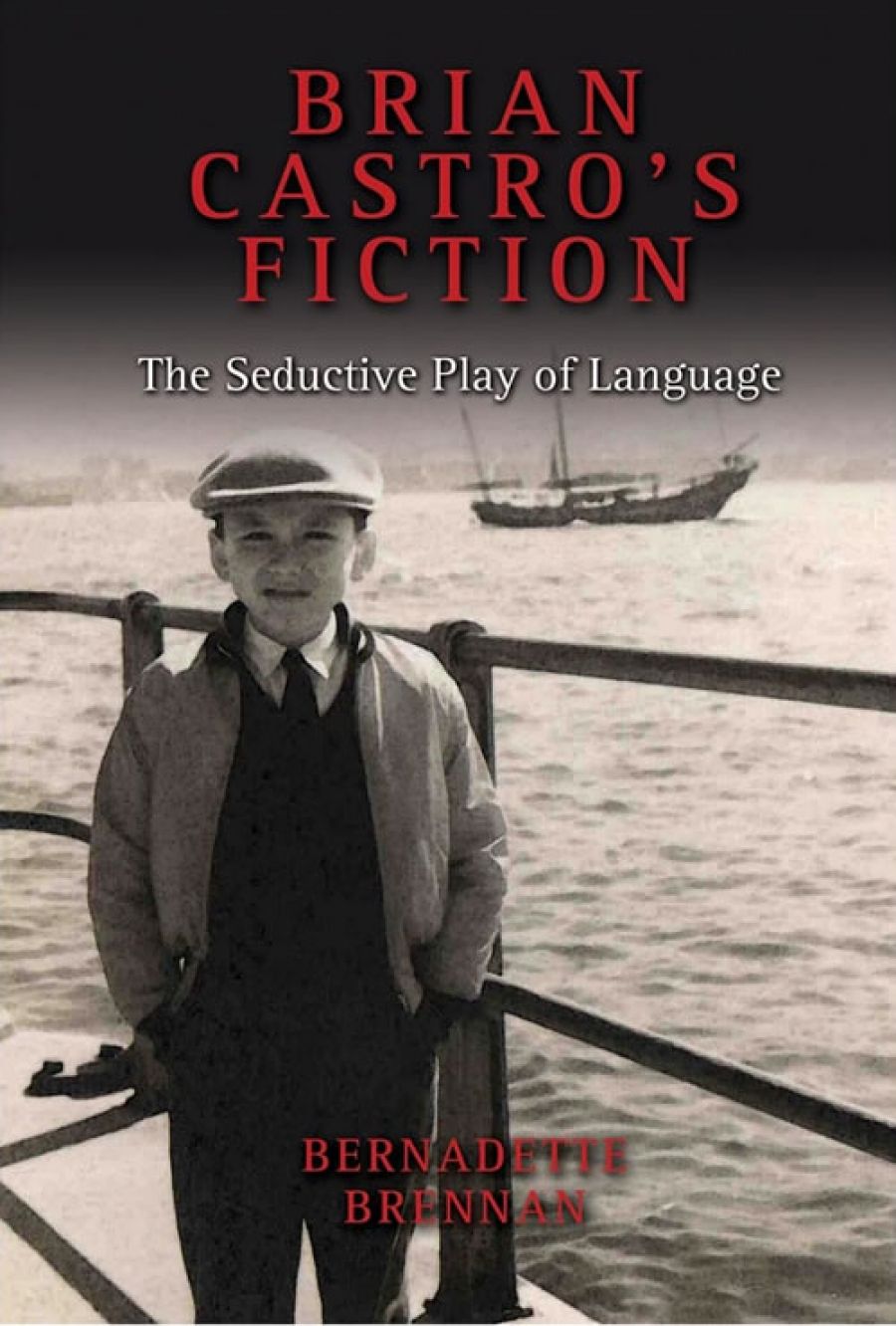
- Free Article: No
- Contents Category: Literary Studies
- Custom Article Title: David Callahan reviews 'Brian Castro's Fiction' by Bernadette Brennan
- Review Article: Yes
- Article Title: Castro's adventure
- Online Only: No
- Custom Highlight Text:
Brian Castro has been leading his readers on an exhilarating chase since Birds of Passage in 1983, and his allusive, melancholy but sensual work leads Bernadette Brennan to being confidently: ‘Brian Castro is one of the most innovative and challenging novelists writing in English today.’ In her attempt to prove the justice of this assertion, Brennan is far too attuned to the richness of Castro’s work to try to establish any sort of total explanatory grid, and her book is less an attempt to tidy Castro up than a guide to some of the places where we might most profitably enjoy him.
One of the principal characteristics of Castro’s work, after all, is the ambition with which he calls out to his readers, inviting us to rise to the challenge and participate in the enjoyment of the dazzling multiplicity of issues, references, allusions, plays on words, and theoretical gambits that rub shoulders (and other parts) throughout his books.
- Book 1 Title: Brian Castro's Fiction
- Book 1 Subtitle: The seductive play of language
- Book 1 Biblio: Cambria Press, $99.95 hb, 220 pp
In Brennan’s admission that trying to analyse Castro’s work comprehensively would fail, she finds sanction in Castro’s own words about the creative incompletion of failure, although failure is endemic to the critical enterprise, whoever the author and whatever their theoretical territory. Indeed, it is central to Castro’s work that language is failure in a deep existential sense. We ask of language things it cannot supply, such as absolutely accurate translations from our experience, place in the world, or relation to others. And we find it hard to appreciate how language is not a surrogate for anything else but central to our defence against everything that assails us.
Brennan first introduces Castro’s work as a whole, then takes us through one book at a time until The Garden Book (2005). This results in a certain degree of repetition, given Castro’s consistent concerns, but Brennan tries to avoid tedium by drawing her explanatory citations from varying sources, and modulating the emphases in each chapter. There are many of these explanatory quotations taken from the type of theoretical environment in which Castro moves, dominated by such figures as Freud, Benjamin, Kafka, Blanchot, and Barthes. To these are added a large number of smaller citations from and references to the tumultuous cast that inhabits Castro’s writing, from Chinese poetry to Baudelaire, Beckett, and Proust.
Nevertheless, these figures take second place to Castro’s own lucid and provocative explorations of his writing and writing in general, which Brennan cites generously. Anyone interested not just in Castro’s work but in modern writing generally would profit from his selection of essays on writing and culture, Looking for Estrellita (1999). All of the material Brennan cites and all of the themes she introduces are illuminating, although the number of pages she has at her disposal (193) results in some of her arguments seeming compressed, as themes are introduced and citations adduced. Before we know it we are on to the next point.
The areas Brennan most often deals with concern the instability of identity, crucially that of Castro’s narrators and the characters they narrate; the unknownness of origins; the links between death or erasure and writing; and the paradoxical refutation of writing’s being at the service of any programme at the same time as its close attention to the operations of language ensures ethical involvement.
Australia is another issue that surfaces throughout Castro’s work, and Brennan indicates well its troubled status in his novels, along with Castro’s denial and disintegration of standard assumptions about national and personal identities, including so-called multicultural ones.
To some extent, therefore, this makes one nervous about pointing out that this relatively rare monograph dedicated to a contemporary Australian writer has had to be published in the United States, where interest in writing from Australia is hardly widespread, and in a format too expensive for most scholars interested in Castro’s work. At the same time, we must be grateful to Cambria Press’s plans to publish further books on writers from Australia, given the need for summarising and signposting books such as this one, in which a writer’s oeuvre is dealt with, enabling us to see how different books relate to each other and become mutually illuminating.
Anyone interested in Castro’s work will need to consult this book, but they will not need to feel that Brennan has covered everything so completely that there is little scope for anything else. She is not so much marking out territory as inviting us all to participate in the joy to be had from Castro’s ‘seductive play of language’, a play that is nonetheless deadly serious in its invigorating appeal to us to ‘grow bold imaginatively’. As this appeal is articulated centrally via ambivalence, paradox, and the dissolution of boundaries, Brennan has had her work cut out for her. Luckily she persevered. Now it is over to us to read The Bath Fugues (2009) and continue growing.


Comments powered by CComment